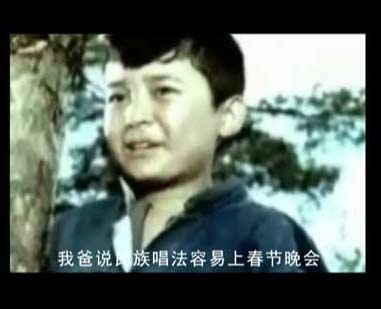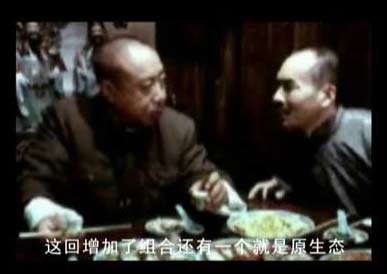New regulations are in the pipeline to regulate video content on the Internet
in the wake of a surge in short satirical films online, according to the State
Administration of Radio, Film and Television.
Video spoofs have become so popular that netizens have even coined a slang
term, "egao," to describe the act of using real film clips to create mocking
send-ups.
From late August or September, only authorized websites such as sina.com,
sohu.com and netease.com, will be allowed to show short films under the new
regulations, Xinhua News Agency reported, citing an announcement by the
administration.
A recent example of the trend, it said, was a 10-minute
satire of a 1974 film called "Sparkling Red Star" which was remade with original
clips to tell the story of an aspiring pop star competing in a television
singing contest. The original film chronicles the struggles of a brave child
soldier, Pan Dongzi, in revolutionary-era China.

A
recent 10-minute satire of a 1974 film called "Sparkling Red
Star" was remade with original clips to tell the story of an aspiring
pop star competing in a television singing contest. The original film
chronicles the struggles of a brave child soldier, Pan Dongzi, in
revolutionary-era China. [sina.com] |
The parody also turns the evil landowner who brutally
exploited tenants into a silly judge taking bribes, and changes Pan's father
from a Red Army soldier into a Beijing real estate tycoon.

In the
remade clips of "Sparkling Red Star", the evil landowner
who brutally exploited tenants was turned into a silly judge taking
bribes, and changes Pan's father from a Red Army soldier into a Beijing
real estate tycoon. [sina.com] |
The video attracted millions of hits.
Xinhua said the "Sparkling Red Star" satire was widely criticized, with some
commentators saying that such a distortion of the country's revolutionary
history was "immoral and unacceptable."
Among other recent spoofs was a 20-minute short film titled "The Bloody Case
of the Steamed Bun," using clips from director Chen Kaige's elaborate costume
drama "The Promise."
Prankster Hu Ge unexpectedly reaped fame after posting his parody of "The
Promise" online earlier this year. Chen threatened to sue.
Hu was quoted by the Beijing News as saying on Tuesday that "the new rule has
nothing to do with me. I will not broadcast my films on the Internet. Instead, I
will send them peer-to-peer or through MSN."
Internet reactions were mixed: a netizen called Geshoumojie wrote on his blog
that such a rule is unnecessary.
"If this regulation is released, where should netizens share their creations?
Will the public still have the right to self-entertainment?" he said.
But the new rule also had some supporters. "Some producers of these clips may
think it is great fun but they do not realize the clips damage the core values
of our society," said Guo Songmin in an article published by China Youth Daily.